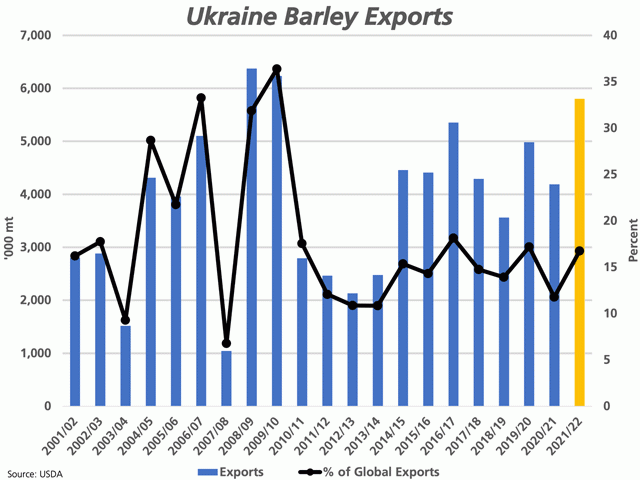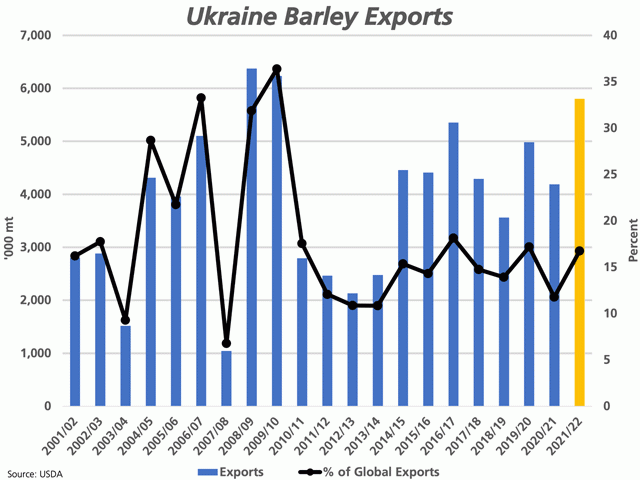Canada Markets
Ukraine's Barley Situation Raises Concern
USDA estimates show that Ukraine punches above its weight when it comes to barley exports on to the world market. In 2020, USDA Foreign Agricultural Service (FAS) data shows Ukraine producing 9.9 million metric tons (mmt), the largest volume in 12 years, which accounts for 6.8% of global production, estimated at 145.1 mmt. To compare, Canada is estimated to have produced 6.9 mmt, sharply reduced by drought, which represents 4.8% of total global production while producing 6.7% of global production in 2020.
A significant volume of Ukraine's production is exported, with the 2021-22 export forecast at 5.8 mmt, which represents 16.7% of the 34.7 mmt global exports in 2021-22. This is the largest volume exported in 12 years and the largest share of global exports achieved in five years.
P[L1] D[0x0] M[300x250] OOP[F] ADUNIT[] T[]
The challenge facing the country is two-fold, which includes the harvest of winter barley and planting of spring-seeded barley. Feednavigator.com estimates 40% of the county's barley acres are fall seeded. Producers may face challenges with spring fertilizer applications and the eventual challenge of harvesting this crop amid the ongoing war. The remaining 60% is estimated to be spring seeded, with producers facing supply chain issues affecting input supplies along with the ability to get to the field to plant. Social media posts are pointing to some producers in the field wearing protective gear on the tractor. Producers of both fall-seeded and spring-seeded crops will face challenges harvesting, storing and exporting the crop.
This uncertainty comes at a time when the USDA estimates global stocks of barley of 16.8 mmt for 2021-22, while the global stocks/use at 11.3% is the tightest seen since 1983-84 or 38 years. Agriculture and Agri-Food Canada (AAFC) is forecasting Canadian stocks at 300,000 mt for the current crop year, a record low.
Current government forecasts point to a 52% surge in Canadian production for 2022-23, with increased volumes fed domestically and exported in the crop year ahead. Despite this, lower production in Ukraine along with lower-expected corn acres in the U.S. will be supportive for barley prices.
Cliff Jamieson can be reached at cliff.jamieson@dtn.com
Follow him on Twitter @Cliff Jamieson
(c) Copyright 2022 DTN, LLC. All rights reserved.






Comments
To comment, please Log In or Join our Community .